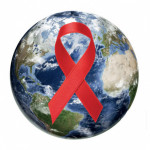Will pre-exposure prophylaxis (PrEP) have unintended public health consequences, such as increased risky sexual behavior or the transmission of drug-resistant HIV? This is a central question that will need to be carefully considered by the U.S. Food and Drug Administration (FDA) and international agencies currently faced with the task of approving, endorsing and financially supporting PrEP, which is the use of antiretrovirals (ARVs) as prevention, according to an August 16 article published online by the scientific journal Nature.
“Several studies in the past year have reported that the very drugs used to treat people with HIV can also stop healthy people from becoming infected,” Erika Check Hayden of Nature writes. “But people taking the drugs may adopt riskier behaviors because they feel protected—a phenomenon known as ‘risk disinhibition’—undermining the benefit of the drugs and potentially infecting others. Moreover, those who become infected while taking the preventive regimen might develop drug-resistant viruses that they could then transmit to others.”
These issues will likely be addressed by experts at a meeting to be convened by the Forum for Collaborative HIV Research on Friday, August 19, in Washington, DC. And as Hayden notes, the lingering public health questions are now of particular importance, in light of Gilead Sciences’ announcement in January that it plans to move forward with an FDA approval request for its fixed-dose combination tablet Truvada (tenofovir plus emtricitabine) as PrEP.
Though the FDA typically bases approval decisions on the results of clinical trials, PrEP studies completed thus far do not provide clear guidance regarding the risks of this particular prevention strategy in real-world settings, the Nature article suggests.
“Some of the successful trials found that people on PrEP actually used condoms more frequently while receiving PrEP treatment, countering the risk-disinhibition argument,” Hayden explains. “And only a few instances of drug resistance occurred, and these did not compromise patients’ treatments. But the controlled setting of a clinical trial, in which participants received intensive prevention counseling and were tested monthly for HIV, is very different from the real world.”
Questions regarding whom to treat with PrEP, particularly in many developing nations struggling to support treatment programs for those living with HIV and in need of treatment, also remain unanswered.
Advertisement
Advertisement
Advertisement






1 Comment
1 Comment